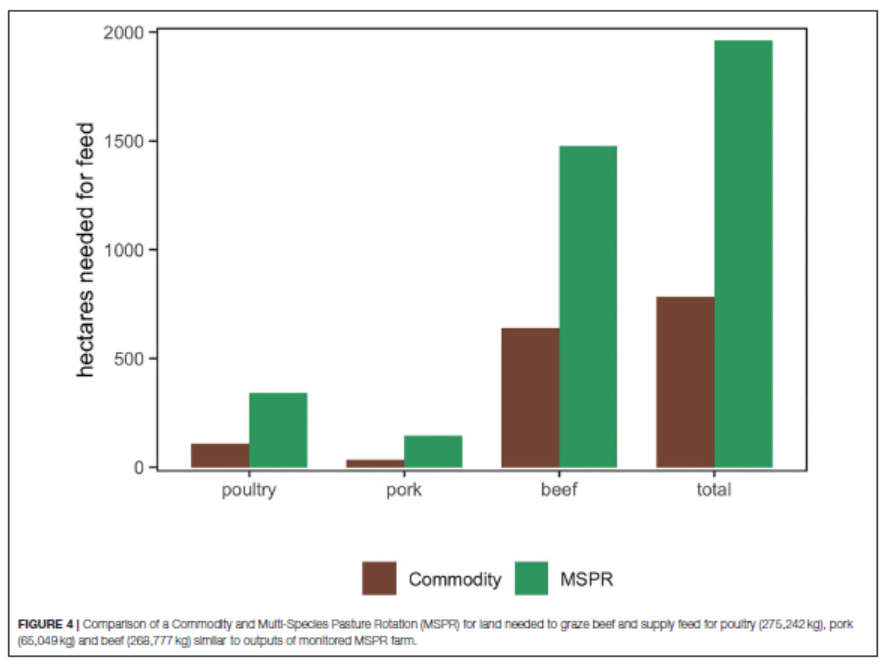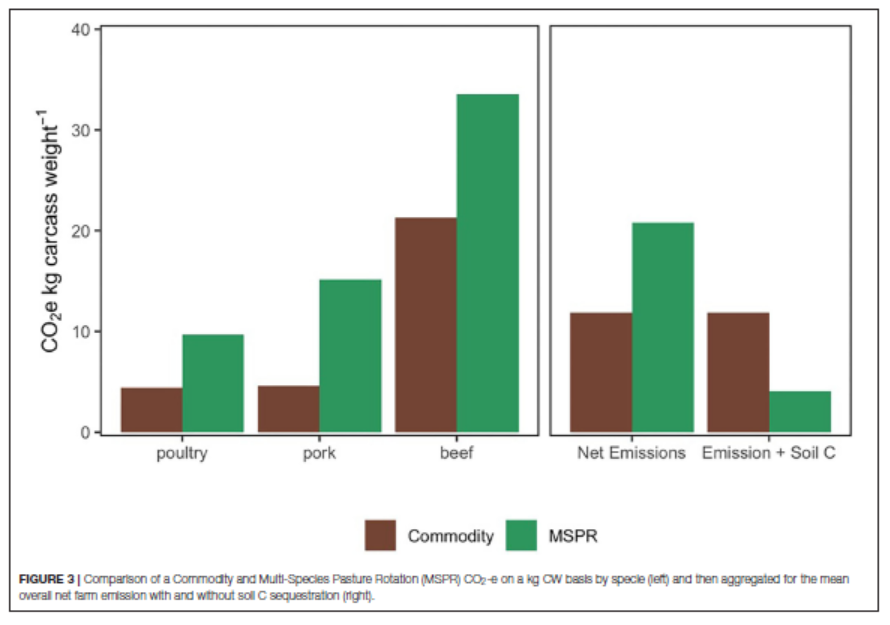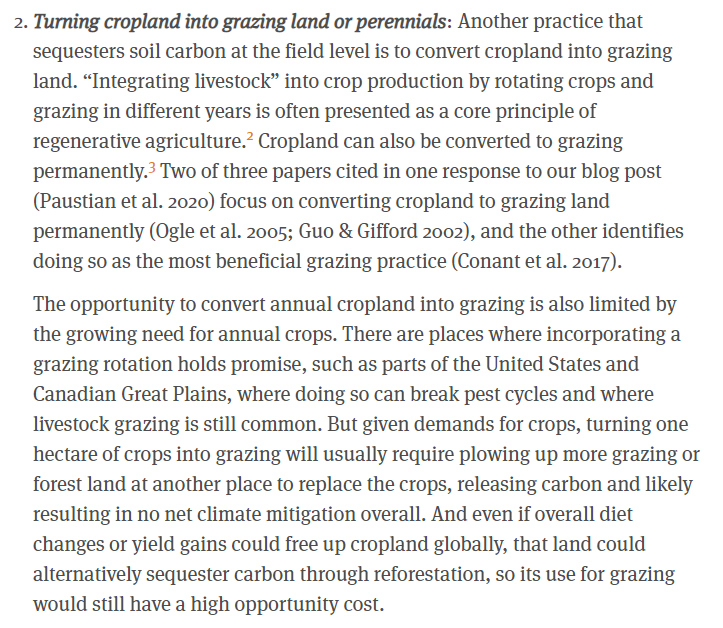The White Oak Pastures peer-reviewed regen ag/soil C paper is out. Some thoughts:
1) The paper finds GHGs of meat production down -66% compared w "conventional" (poultry, pork, beef) per kg produced.
2) However, land use per kg meat is 2.5x (!) higher. 1/ https://www.frontiersin.org/articles/10.3389/fsufs.2020.544984/full
1) The paper finds GHGs of meat production down -66% compared w "conventional" (poultry, pork, beef) per kg produced.
2) However, land use per kg meat is 2.5x (!) higher. 1/ https://www.frontiersin.org/articles/10.3389/fsufs.2020.544984/full
3) The regenerative systems used significantly more land per kg meat across all animal production systems, and when soil C sequestration is not counted, GHGs per kg meat were higher in all production systems too compared to conventional. 2/
4) There are a couple other significant tradeoffs outside the scope of the paper - specifically around alternative uses of the land and thus potential system-wide carbon impacts if this type of agriculture were to be practiced at a wider scale as global food demand grows. 3/
5) Converting cropland to grazing land will sequester soil C for a while, but the opp'ty to do so at scale is limited by the growing global demand for crops. A fuller analysis would include the C consequences of replacing the foregone crops elsewhere. 4/ https://www.wri.org/blog/2020/08/insider-further-explanation-potential-contribution-soil-carbon-sequestration-working
6) There is another potential scenario: instead of converting the cropland to grazing land, completely restoring it to the native ecosystem and probably sequestering even more soil and above-ground carbon, but with zero food production (which would be replaced elsewhere). 5/
7) Or even another scenario: restoring the degraded cropland (if possible) into more productive cropland, which would probably maximize the amount of food produced per hectare with a potential carbon benefit of preventing land conversion from happening elsewhere.
8) This isn't to take away from @paigestanley_ag et al.'s work, and the researchers worked with the data they had. To use their words, I am just flagging some "complexities [that] must be considered in the global debate of agricultural practice and land"...
9) ...in order to assess the conditions under which this type of production system can "fit in" to a world where food (including meat) demand is growing, forests are still being cut down, and large areas of land need to be reforested in order to keep warming below 1.5-2C...
10) ...while improving soil health, safeguarding water resources, building resilience, etc. No easy task!
11) I think a conversation around trade-offs is more useful than getting people excited about "carbon-negative beef," I'm happy to see this paper adding to the discussion about food/ag/land/climate, and there are some potential obvious jumping off points for future research. FIN

 Read on Twitter
Read on Twitter




